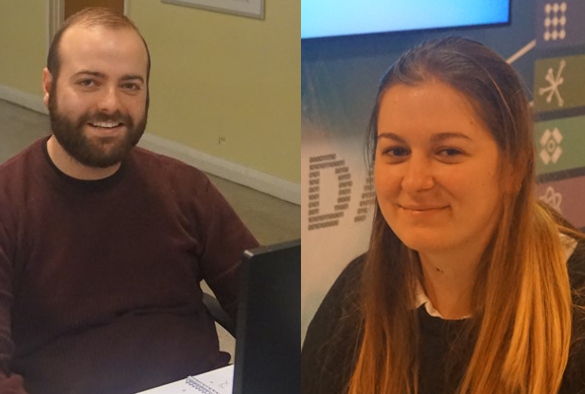Two new LIV.DAT PhDs awarded

Two LIV.DAT students have recently gained their PhDs. Drs Alessandro Biondini and Eloisa Arena were both associate students on the LIV.DAT program, meaning their PhDs were funded from other sources, but they were still able to take advantage of all the additional training that is available to LIV.DAT students such as skills schools and seminars.
Alessandro’s PhD was about the ‘Search for dark photons decaying to muons or electrons in Higgs decays at ATLAS’. Dark photons (ZD) are an excellent candidate for dark matter. They can additionally explain the cosmic electron/positron excesses observed in a number of experiments. The photons can be produced in Higgs decays via H->Z ZD and, if the dark U(1) is broken by a hidden-sector Higgs mechanism by H->ZDZD decays. This study searched for dark photons that decay to electrons or muons, such that the events had four leptons in the final state. Data was taken on the ATLAS experiment at CERN and data analysis was performed, using advanced techniques in machine learning to develop algorithms for the identification of leptons.
Eloisa’s PhD was about the ‘Search for a Higgs Boson decaying to invisible particles with the ATLAS experiment’. If dark matter has less than half of the Higgs mass it might be expected that the Higgs boson would decay to dark matter. In the first experimental run a relatively loose limit on Higgs to invisible yielded extremely dark strong limits in the low mass region. The full second run data combined with new experimental techniques provided a much more stringent limit and much better sensitivity to dark matter. Invisible decay of Higgs bosons that recoil against a W or Z boson that decays hadronically were searched for in data taken from the ATLAS experiment.
Congratulations to both Alessandro and Eloisa on gaining their PhDs and we wish them both the best of luck for the future.